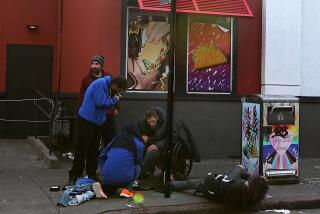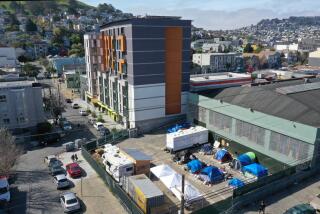S.F. AIDS Risk From Donor Blood Put at One in 61,000
The chance that a blood donation tainted with the AIDS virus will slip through blood bank screening tests is about one in 61,000 in San Francisco, the city with the nation’s highest AIDS rate, a study shows.
The researchers speculate that the risk of becoming infected with the AIDS virus from a blood transfusion is probably lower in areas where the virus is substantially less common.
The study, published in today’s New England Journal of Medicine, was conducted to see how often donations came from donors with “silent infections”--people who carry the AIDS virus but do not have telltale antibodies that reveal the infection.
The risk of becoming infected from transfusions has fallen dramatically since scientists developed tests to quickly reveal the presence of HIV-1, the AIDS virus, but such accidents occasionally do still happen.
“Silent HIV-1 infections are exceedingly rare among screened blood donors,” the researchers wrote, “so the current risk of HIV-1 transmission from blood transfusions, even in high-prevalence metropolitan areas, is extremely low.”
The study was conducted by Dr. Michael P. Busch and colleagues from UC San Francisco.
The researchers analyzed 76,500 blood donations made at the Irwin Memorial Blood Centers in the San Francisco Bay Area between November, 1987, and December, 1989. They divided the blood into 1,530 pools of 50 donors each and tested them with two methods that can detect the AIDS virus directly rather than relying solely on the presence of antibodies.
The latest study results are in line with past estimates of the risk of becoming infected through a blood transfusion.






